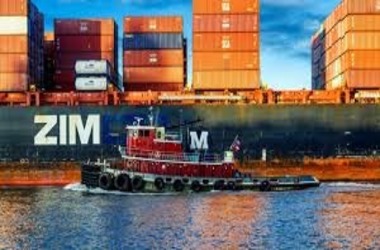
The pilot project was tested and considered successful in cooperation with Sparx Logistics and Wave. Now ZIM has decided to evaluate its platform with more customers and on different trade routes. The pilot’s results are promising, since it has shown that blockchain transactions can replace paper and improve efficiency, as many activities currently rely on e-mails, faxes and other tools.
According to the ZIM announcement, original Bills of Lading were transferred to the recipient in less than two hours after the departure of the vessel, a process that usually takes days or weeks. The complete transfer of documentation, including transfers of ownership and endorsements, was carried out using the blockchain platform.
After testing dozens of cargoes with multiple freight forwarders and cargo owners, ZIM intends to start the next phase of the project by offering eB / L in selected routes to all ZIM customers. During the first quarter of 2019, for the sake of diversity, ZIM intends to focus on North America-Mediterranean and Asia-South Africa routes.
The digitization of the shipping documentation process could significantly reduce the time, costs and complexity of the process for all parties concerned. ZIM is the world’s 18th biggest shipping company and Israel’s number one shipping company. Established in 1945, the company has an annual turnover of $3.4 billion. There are currently 4200 employees and a TEU (Twenty-Foot Equivalent Unit) of 338,754.
Blockchain container shipping platforms are abundant. TradeLens, a joint initiative of IBM and Maersk, is the highest profile. But Maersk’s involvement is guarded by other container shippers. The TradeLens website even states: “Maersk business units including Maersk Line, Hamburg-Sud, APMT, and Damco participate on the same terms as other participants with no special treatment or access to competitor data.”
Many competitors worked with CargoSmart, which announced a blockchain platform with five of the largest ten container carriers two months ago. Their combined market share of container shipping outstrips TradeLens.
Kuehne + Nagel is the biggest freight forwarding company. They work with Accenture on a blockchain project that has been tested with the parent company Budweiser. The Blockchain Open Trade platform was launched in Singapore six months ago to serve the whole region.